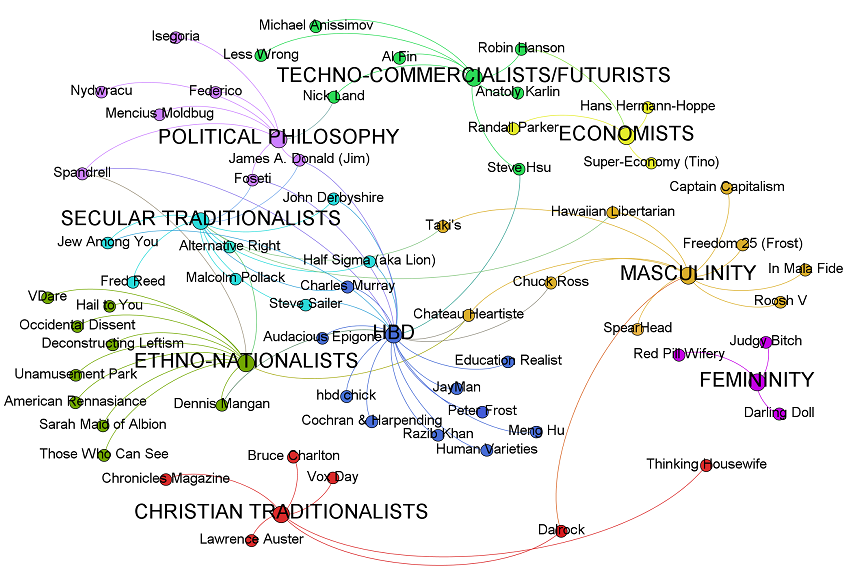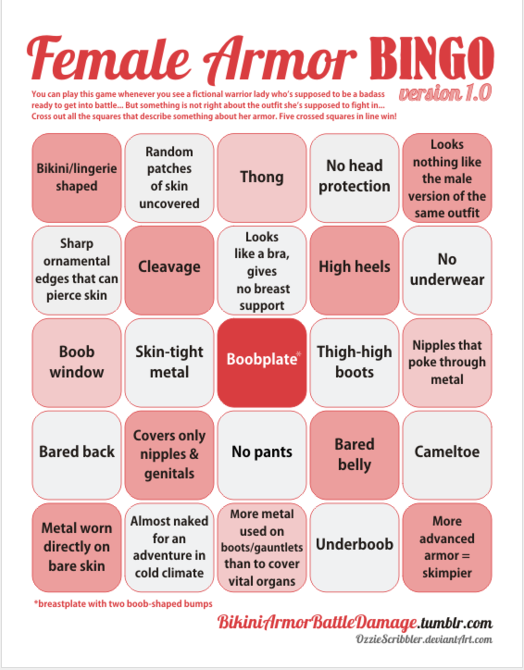I must not have been paying attention, but according to Jamie Bartlett, we should be terrified of a “dark enlightenment” that is sweeping the internet:
Since 2012 a sophisticated but bizarre online neo-fascist movement has been growing fast. It’s called “The Dark Enlightenment”. Its modus operandi is well suited to today’s world. Supporters are dotted all over the world, connected via a handful of blogs and chat rooms. Its adherents are clever, angry white men patiently awaiting the collapse of civilisation, and a return to some kind of futuristic, ethno-centric feudalism.
It started, suitably enough, with two blogs. Mencius Moldbug, a prolific blogger and computer whizz from San Francisco, and Nick Land, an eccentric British philosopher (previously co-founder of Warwick University’s Cybernetic Culture Research Unit) who in 2012 wrote the eponymous “The Dark Enlightenment”, as a series of posts on his site. You can find them all here.
The philosophy, difficult to pin down exactly, is a loose collection of neo-reactionary ideas, meaning a rejection of most modern thinking: democracy, liberty, and equality. Particular contempt is reserved for democracy, which Land believes “systematically consolidate[s] and exacerbate[es] private vices, resentments, and deficiencies until they reach the level of collective criminality and comprehensive social corruption.”
So, according to this report, we should be terrified of a bunch of basement-dwelling maladjusted would-be techno-feudalists. The question that immediately springs to mind is “why?” We’re told that they’re “neo-reactionary”, “racist”, and “sexist”. We need to be afraid of them because they have the power to … well, nothing. He’s sounding the tocsin of alarm because he’s discovered that there are people who are wrong on the internet!
Update, 3 February: Scharlach created an affinity diagram of the Dark Enlightenment movement, grouped according to their major themes.

Click to see the original post.
Update, 4 February: ESR‘s take on the affinity diagram linked above.
Just looking at the map, someone unfamiliar with the players would be justified in wondering if there’s really any coherence there at all. And that’s a fair question. Some of the people the map sweeps in don’t think of themselves as “Dark Enlightenment” at all. This is notably true of the light green cluster marked “Techno-Commercialists/Futurists” at the top, and the “Economists” connected to it in yellow.
If I belonged on this map, that’s where I’d be. I know Eliezer Yudkowsky; the idea that he and the Less Wrong crowd and Robin Hanson feel significant affinity with most of the rest of that map is pretty ludicrous.
Note, however, that one of only two links to the rest is “Nick Land”. This is a clue, because Nick Land is probably the single most successful booster of the “Dark Enlightenment” meme. It’s in his interest to make the movement look as big and various as he can manage, and I think this map is partly in the nature of a successful con job or dezinformatsiya.
In this, Land is abetted by people outside the movement who are well served by making it look like the Dark Enlightenment is as big and scary as possible. Some of those people lump in the techno-futurist/economist group out of dislike for that group’s broadly libertarian politics – which though very different from the reactionary ideas of the core Dark Enlightenment, is also in revolt against conventional wisdom. Others lump them in out of sheer ignorance.
So, my first contention is that Nick Land has pulled a fast one. That said, I think there is a core Dark Enlightenment – mostly identifiable with the purple “Political Philosophy” group, but with some crossover into HBD and Masculinity and (possibly) the other groups at the bottom of the map.
For the record, I don’t think I’ve got a dog in this fight … I only recognize the names of nine of the linked sites, and most of those are of the recognize-the-name sense, not the familiar-with-the-content sense.





